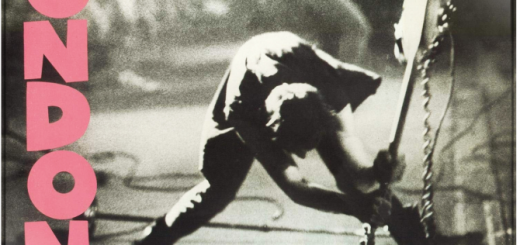Straight to Hell by The Clash Lyrics Meaning – A Deep Dive into the Song’s Poignant Commentary on Sociopolitical Issues
Lyrics
How’s about a British jig and reel?
Speaking King’s English in quotation
As railhead towns feel the steel mills rust
Water froze
In the generation
Clear as winter ice
This is your paradise
There ain’t no need for ya
There ain’t no need for ya
Go straight to hell, boys, go straight to hell, boys
Wanna join in a chorus
Of the Amerasian blues?
When it’s Christmas out in Ho Chi Minh City
Kiddie say papa papa papa papa pappa-san, take me home
See me got
Photo photo photograph of you and mamma mamma mamma-san
Of you and mamma mamma mamma-san
Let me tell you ’bout your blood, bamboo kid
It ain’t Coca-Cola, it’s rice
Straight to hell
Go straight to hell boys
Go straight to hell
Go straight to hell boys
Oh Papa-san
Please take me home
Oh Papa-san
Everybody, they wanna go home
So Mamma-san says
You want to play mind-crazed banjo
On the druggy-drag ragtime U.S.A.?
In Parkland International
Ha, junkie-dom U.S.A
Where pro-caine proves the purest rock man groove
And rat poison
The volatile Molotov says
Straight to hell
Can you really cough it up loud and strong?
The immigrants, they wanna sing all night long
It could be anywhere
Most likely could be any frontier any hemisphere
In no-man’s-land
There ain’t no asylum here
King Solomon he never lived ’round here
Straight to hell, boys
Go straight to hell, boys
Go straight to hell, boys
Go straight to hell, boys
Oh, papa-san, please take me home
The Clash, a band with an unshakeable resolve to lash out against societal malfunctions, unleashed ‘Straight to Hell’ as part of their 1982 album, ‘Combat Rock’. This track stands as an emblematic outcry against the insidious consequences of war and global political decisions. Defying superficial interpretations, ‘Straight to Hell’ indulges in a profound dissection of dislocation, the aftermath of conflict and the identity crisis faced by diasporic populations.
Veiled in the shadow of its haunting melody and strident beats are the stories of the voiceless, waiting to be heard. The soul-stirring lyrics speak of the desolation of industrial towns, the struggles of the Amerasian children after the Vietnam War, and the bleak prospects of immigrants in search of a better life. By unthreading the dense lyrical fabric, we embark on a journey to uncover the intense messages Joe Strummer and his bandmates embed within ‘Straight to Hell’.
The Industrial Ghosts of Progression
‘Straight to Hell’ opens its narrative with a piercing gaze upon the deindustrialization of Britain. The Clash depicts railhead towns succumbing to rust, where water freezes ‘in the generation’, a chilling metaphor for stagnation and a lost future. The band is casting a dark image of once-thriving communities now desolate and forgotten, a result of economic policies and a shift away from manufacturing.
This theme of abandonment sets the tone for a song that continuously reminds the listener of the cost that comes with progress, or oftentimes, the illusion of it. The Clash isn’t just providing a mere social commentary; they are sounding a siren for the culture and lives that languish in the wake of change.
A Chorus of Lost Identity: The Amerasian Blues
Deeply embedded in the song is the heart-wrenching plight of Amerasian children – offspring of U.S. soldiers and Vietnamese women during the Vietnam War. The lines ‘When it’s Christmas out in Ho Chi Minh City / Kiddie say papa papa papa papa pappa-san, take me home’ reveal the alienation and cultural dislocation these children experienced.
Their cry for a ‘pappa-san’ to take them home is an evocative image reflecting the universal longing for belonging. The Clash purposefully use the phrase ‘Amerasian blues’ to envelop the children’s sorrow within the cultural context of blues music, culturally associated with grief and oppression.
The Rice and Coke Analogy: A Struggle for Cultural Existence
Perhaps one of the most direct metaphors used by The Clash is comparing bloodlines and heritage to ‘Coca-Cola’ and ‘rice’. This sharp contrast between the quintessentially Western and the Eastern is a commentary on cultural imperialism and homogenization.
By stating that the ‘bamboo kid’s’ blood ‘ain’t Coca-Cola, it’s rice’, the song highlights the overpowering force of American culture and its insidious influence that can override local traditions and identities, perpetuating a cycle of cultural erasure and dependent economies.
Searing Take on American Dream: The Junkie-dom U.S.A.
As the verses progress, The Clash hurl listeners into the dystopian ‘druggy-drag ragtime U.S.A.’, a pointed critique of the American dream now riddled with drug abuse and the empty promise of freedom. The stark image of a ‘mind-crazed banjo’ player amid a junkie-dominated landscape is powerful and jarring.
Using music – the banjo – as metaphor, the band censures the disillusionment that comes with substance addiction, highlighting the contradictions within the fabric of American society where ‘pro-caine’ is lauded as the purest form of escapism.
The Hidden Message: No-man’s Land as a State of the World
Strummer and The Clash save their most profound indictment for the idea that no place on Earth offers real asylum. The lyrics ‘In no-man’s land / There ain’t no asylum here’ coupled with ‘King Solomon he never lived ’round here’ offers a bleak worldview, where wisdom and justice are absent.
These lyrics distill the song’s overarching message: In a world ravaged by conflict and inequality, a true place of refuge is a myth. The Clash, known for their brash and unflinching political messages, drive home the notion of a global landscape bearing the scars of human decisions and exiled souls in search of elusive peace.








